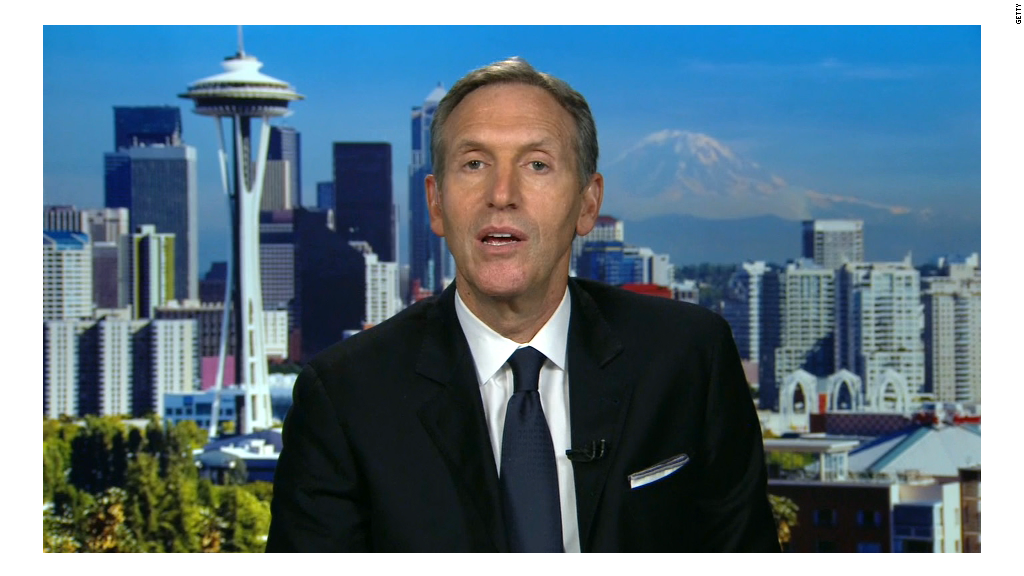
Starbucks CEO Howard Schultz is not one to back down about an issue he cares about and Wednesday he staunchly defended the company's much lampooned effort to improve race relations by having baristas write Race Together on coffee cups.
"It's not going to solve racism, but I do believe it is the right thing to do at this time," Schultz told CNN Money's Poppy Harlow Wednesday.
He launched the campaign earlier this week aiming to start a national conversation about race. The response has been mixed, including some harsh backlash on social media. One Starbucks (SBUX) public relations executive temporarily deleted his Twitter account after he was personally attacked.
But Schultz has a reputation for taking controversial stands, including having his staff write "work together" on cups in 2012 during the Congressional "fiscal cliff" drama. He's also spoken out about gun control, gay rights and affordable education.
He said Wednesday that Starbucks is forging ahead with his race campaign. In fact, Schultz spent at least half the time at the company's shareholder meeting Wednesday talking about the push, which he's calling Race Together.
Related: Starbucks exec back on Twitter after #RaceTogether backlash
"Friends of mine and some people at Starbucks felt it wasn't an issue we should engage in and I rejected that," Schultz said.
"If we all continue to be bystanders on something that's dividing the nation, then where is this headed? We are better than this as a country," he said.
Over the past few months Starbucks has held open forums for employees to talk about it. This week, it pushed further, encouraging baristas to start conversations with customers by writing the words "Race Together" on cups.
Related: Starbucks is tackling racism one cup at a time
But not everyone wants to discuss race relations while ordering their morning coffee, nor do they think the coffee line is the right place to have this kind of conversation.
But writing the message on cups is only a small aspect of the campaign, Schultz said.
The big idea, he said, it to act as a catalyst for a conversation that raises understanding, empathy and compassion around the issue.

